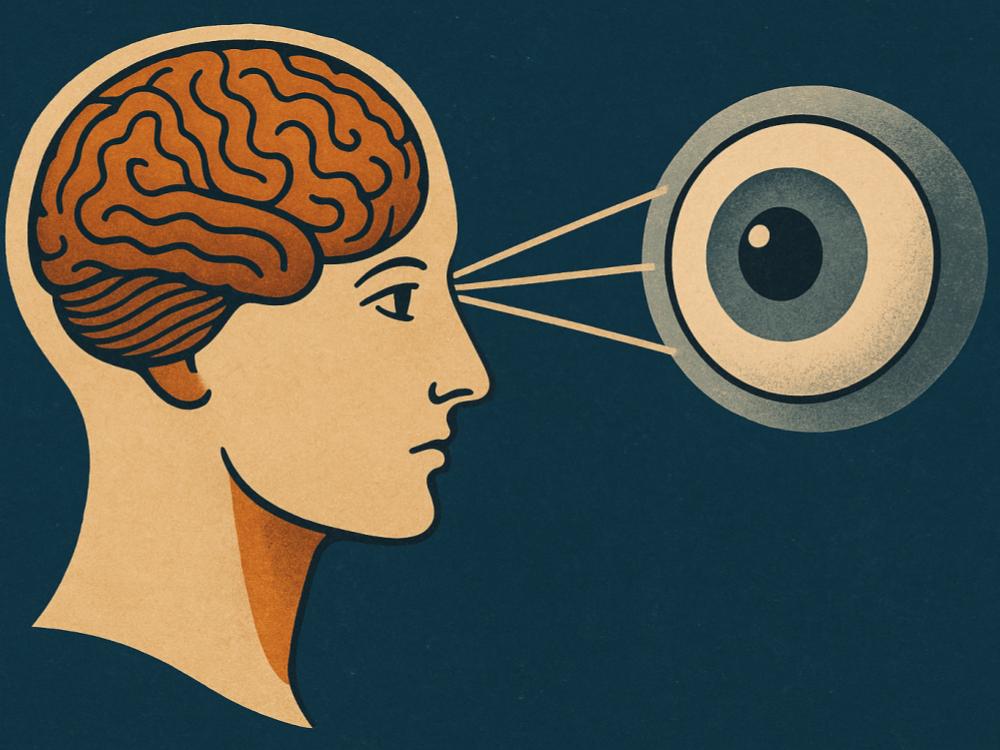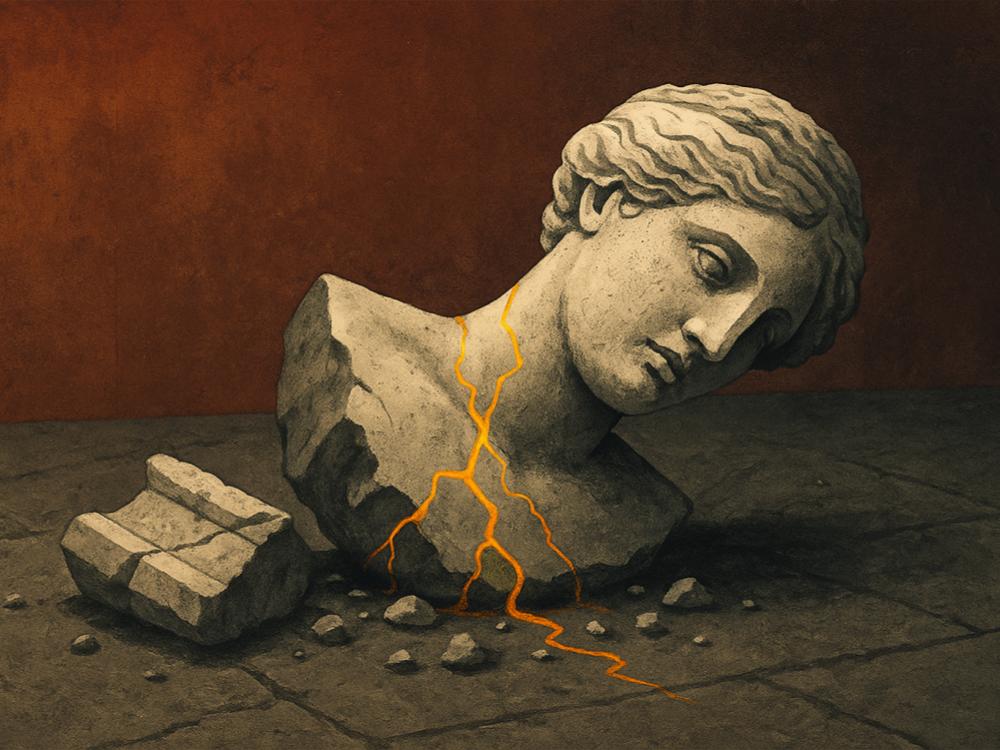Absurdism is the Only Honest Belief Left.

There is a reflex many of us learn early, a quiet expectation that the world should announce its purpose before we agree to live inside it. We wait for events to arrive with captions and for losses to carry a moral that redeems their cost. When the captions do not appear, we feel cheated, as if someone misplaced the manual and left us to improvise with the lights already on. The feeling is understandable. The fiction behind it is not. There is no clerk behind the counter assigning reasons. There is no registrar recording the sense our days are supposed to make. Absurdism does not celebrate chaos or make a sport of emptiness. It simply refuses to decorate the silence with guarantees that were never offered. In that refusal is a smaller dignity, and a sturdier one. It lets us stand up inside the unsolved without pretending a supervisor will arrive with answers.
The pressure to pick an ultimate why is steady and persuasive. Institutions run on mission statements. Families repeat stories about what counts as a real life. Private routines imitate the tone until motives start to feel like passports and action without an explanatory stamp looks counterfeit. Then life proceeds with its usual indifference to our scripts. A diagnosis appears on a Tuesday. A job ends because the chart upstream changed color. A friendship loosens not through betrayal but through calendars that can no longer find each other. After each episode the mind reaches for a sentence that will close the loop. The loop resists. Absurdism begins there, not with despair, but with a careful inventory of how much suffering comes from forcing clean meanings onto uncooperative facts and how much relief arrives when we let events remain uncaptioned while we continue to act with care.
Refusing the Counterfeit Meaning
The first work is subtractive. Counterfeit meaning flatters the narrator and punishes a convenient villain. It uses the cadence of inevitability to convert messy outcomes into tidy parables. It also lets us postpone the demand to choose by promising that the universe will eventually validate our preferences. Absurdism suspects these comforts, not out of cynicism but out of respect for what collapses the moment the bill arrives. In the space left behind it offers something quieter and more exacting. You may act before understanding has congealed. You may care without an authorization code. You may continue when the rationale is not available. The moral seriousness lies here. If you will only move once a cosmic accountant guarantees the ledger, delay becomes your decision dressed up as faith.
Practicing Steadiness Without a Script
Living this way is a craft, not a mood. It benefits from structure. Choose a practice that locates value inside the act itself and repeat it until the repetition changes you. Answer correspondence with attention even when nobody is measuring. Hold a friend's story to the end before you rehearse your reply. Cook ordinary meals as if the plate were already worthy of care. The aim is not sainthood by small chores. The aim is to relocate meaning from the post hoc narrative to the present gesture. Think of meaning like heat. Enough specific actions in a confined space will raise the temperature. You may never distill a principle that satisfies a debating club. The room will be warmer. That is not nothing.
Courage under these terms looks quieter than the stories we were taught to admire. When explanations do not arrive, some people submit. Others perform. There is another path. Repetition. Repair. Return. Mornings are allowed to be mornings, not referendums on destiny. You make the call because calls build bridges between separate lives even when outcomes will not be guaranteed. The movement is mostly legato. One phrase flows into the next. Now and then a short note lands to mark the beat. Over time the continuity becomes listenable in a way the hunt for constant peaks never does.
The Friction of Hope
This posture is not a refuge from big questions. It is a relocation of hope. Absurdism does not abolish hope. It moves hope from the metaphysics of eventual justification to the craft of making. If there is a future worth wanting, it is built from today's boards, not promised by a document about better wood. Ambition is still welcome. Reform is still necessary. The point is that effort is not a contract with the cosmos. Outcomes will not grade themselves on a moral axis we can audit. We learn to judge our days by the integrity of the making rather than the favor of the weather.
Two thirds of the way through a hard season, when the streets were a grey slurry and the calendar would not close, I remembered a sentence from a visiting poet who had been asked how to continue when the world refuses to clarify itself. She paused, smiled as if the question were an old companion, and answered in a voice that carried cleanly in a bad auditorium.
The task is not to solve the silence. The task is to sing in key.
But what does this mean? It means we do not have to translate the void before we may answer it. We can keep the pitch of our days steady even when the room offers no echo. Honesty is not despair. It is an agreement about what will not be provided and a renewed commitment to what can be practiced. A tune carried across an ordinary afternoon is not small. It holds a person together.
Tests That Matter and Tests That Do Not
Absurdism keeps standards, though they are domestic rather than cosmic. Ask whether your choices hold under repetition. Ask whether they survive contact with other people rather than only sounding good alone. Ask whether they would make sense to you from across the room. These tests matter because they measure the shape of a life in motion. The tests that do not matter are the grand interrogations that demand a justification no one can provide. What does this amount to in the eyes of the universe. How will history grade you. Some answers can be earned with patience. Others are not in our jurisdiction. Sorting them is not nihilism. It is hygiene.
Experience lends these claims weight. When I have ignored them, I wandered into performances of meaning that felt profound for a weekend and dissolved by Monday. When I honored them, small habits stacked into a durable architecture even while the plot bent in directions I did not request. Friends who persist say similar things. The work does not become easy. It becomes less theatrical. The drama moves from the caption to the making. Trust accumulates.
The Vow That Follows
What remains is a modest vow at the right scale for a life. Keep moving without a script and let care live inside the gesture. Keep your questions honest about the answers they can earn and unresentful about the ones they cannot command. When nostalgia knocks, let it tell a story and then let it leave without turning your home into a shrine. When certainty appears, ask for identification. Admit what has earned its badge through repeated contact with the world.
You do not need to abandon wonder to live without guarantees. You do not need to declare the world empty to stop asking it for stories it cannot tell. Choose a fidelity and accept its consequences. If you pledge loyalty to explanations, your days will be spent auditing results. If you pledge loyalty to the making, your days will begin to accumulate. When the room is quiet and the old instinct rises to bargain for a reason, let the bargain pass. The melody is still playing. Keep the line unbroken.


